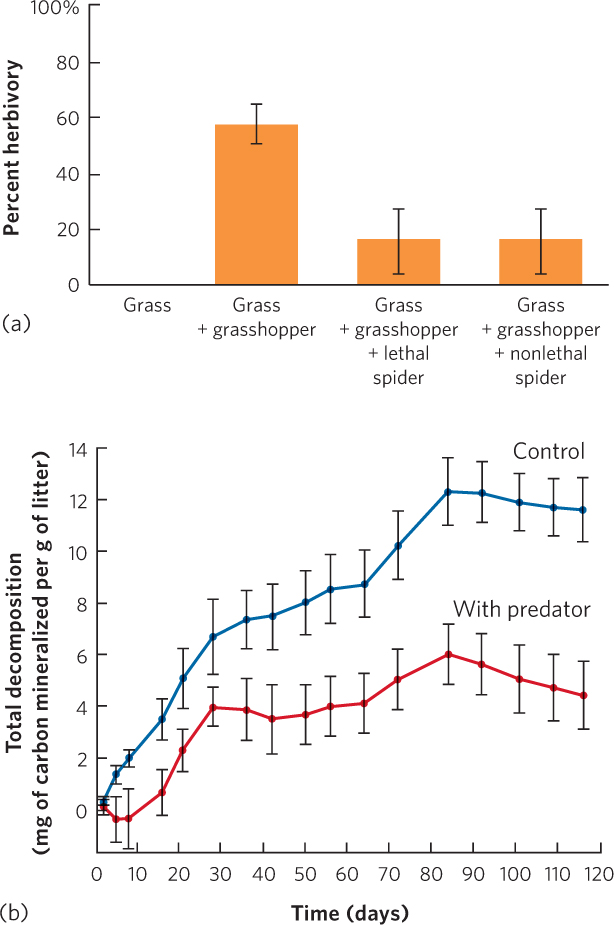
Figure 18.20 Trait-mediated indirect effects. (a) When researchers created simplified communities with only grass and grasshoppers, the amount of grass damage was relatively high. When lethal spiders were added, the grasshoppers caused less damage to the grass, which indicates that spiders had an indirect positive effect on the grass. When spiders with glued mouthparts were added, there was a similar reduction in herbivory because the grasshoppers spent less time feeding. These data confirm that the indirect effect is not mediated by reductions in grasshopper density but by changes in grasshopper traits. (b) After the grasshoppers died, the bodies of grasshoppers raised with predators were lower in nitrogen, which caused the decomposition of the surrounding dead grass to occur at a slower rate. Error bars are standard errors.
Data from A. P. Beckerman, M. Uriarte, and O. J. Schmitz, Experimental evidence for a behavior-mediated trophic cascade in a terrestrial food chain, Proceedings of National Academy of Science 94 (1997): 10735–10738; D. Hawlena et al., Fear of predation slows plant-litter decomposition, Science 336 (2012): 1434–1438.